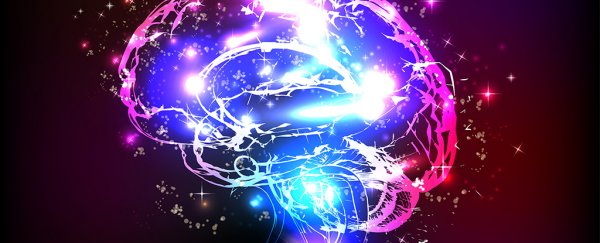Can we really elevate our brains to some kind of higher state of consciousness? New research suggests it might be possible - scientists have spotted evidence of a sustained and previously unobserved increase in neural signal diversity in people under the influence of psychedelic drugs.
Neural signal diversity is a sign of how complex the activity going on in our brain is – when we're awake the diversity is greater than when we're asleep. So the results are early evidence that there might be a whole new state of mind our brains could be capable of reaching.
Researchers from the University of Sussex in the UK say they're cautiously excited about the findings, which for the first time show greater neural signal diversity is possible than simply being awake and aware of what's happening.
"This finding shows that the brain-on-psychedelics behaves very differently from normal," explains one of the team, Anil Seth.
"During the psychedelic state, the electrical activity of the brain is less predictable and less 'integrated' than during normal conscious wakefulness – as measured by 'global signal diversity'."
In the image below, red indicates more neural activity.
 University of Sussex
University of Sussex
Neural signal diversity has been studied before, but usually in less active and more predictable states of consciousness, as in people who are asleep or in a vegetative state.
For this study, the scientists reanalysed data gathered in earlier experiments by Imperial College London and the University of Cardiff in the UK, where volunteers were given psilocybin, ketamine, or LSD.
The neural signal diversity of the participants was consistently higher across all three psychedelic drugs, according to the latest research, which used brain imaging technology to measure the tiny magnetic fields generated by the brain.
They also showed that the brain connections were more random, which fits the randomness of thought you might expect with a drug trip.
For now the scientists are keen to stress they don't think this new state of consciousness is any better, or that we should all be adding psychedelic drugs to our diet – but there does seem to be something distinct and different going on that's worth further study.
Eventually, these findings could help develop drugs to control mental conditions like depression, the researchers say.
"That similar changes in signal diversity were found for all three drugs, despite their quite different pharmacology, is both very striking and also reassuring that the results are robust and repeatable," says one of the researchers, Suresh Muthukumaraswamy, from the University of Auckland in New Zealand.
The study also gives us extra insight into the relationship between how conscious we are, and what we're actually conscious of – a new area of research that scientists are just beginning to explore.
These findings might also improve understanding of how hallucinations appear to those who take psychedelic drugs, and why such drugs are often associated with sudden bursts in creativity.
"People often say they experience insight under these drugs – and when this occurs in a therapeutic context, it can predict positive outcomes," says Robin Carhart-Harris from Imperial College London, who worked on both the earlier studies and the current one.
"The present findings may help us understand how this can happen."
The research has been published in Scientific Reports.
